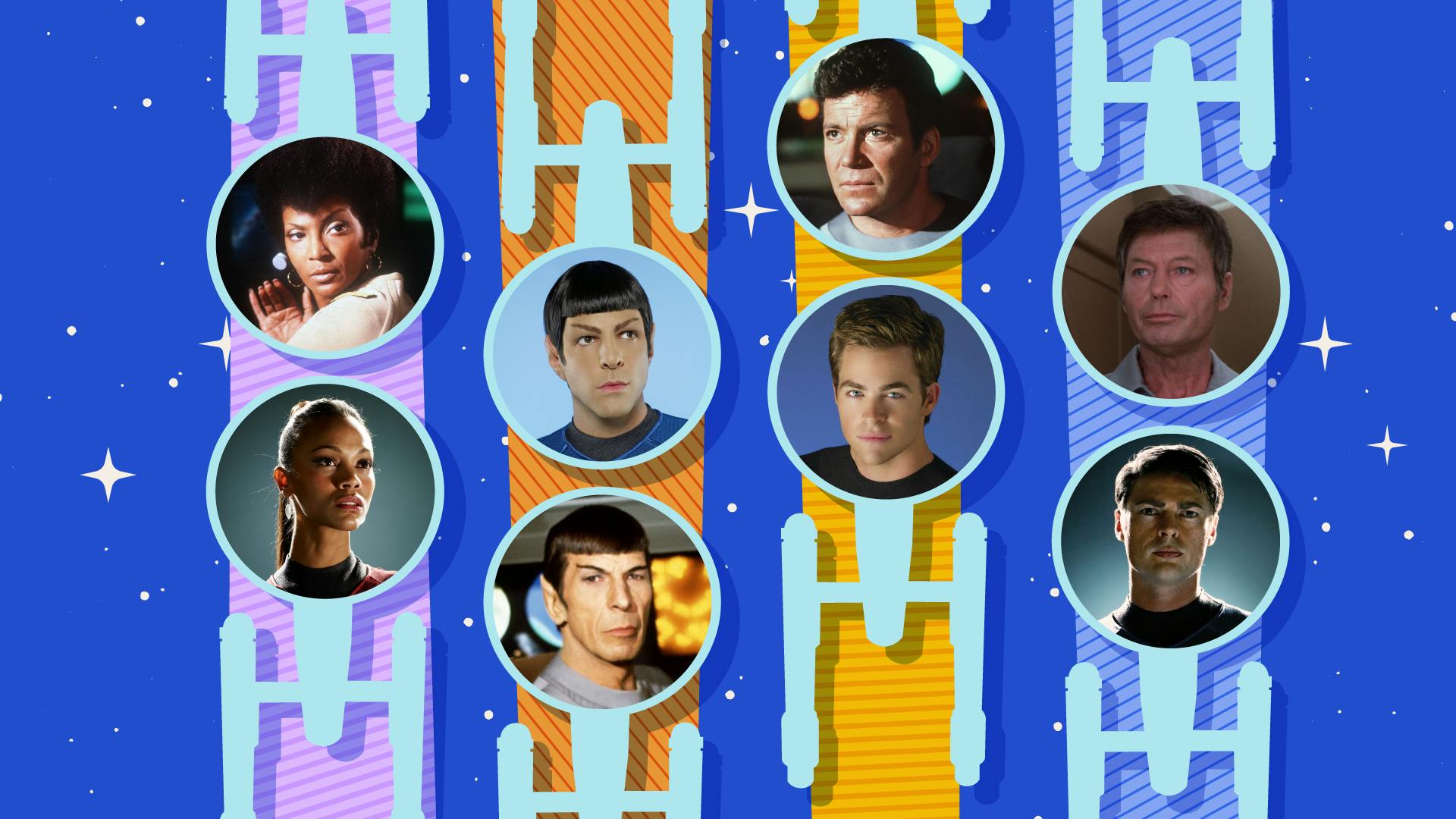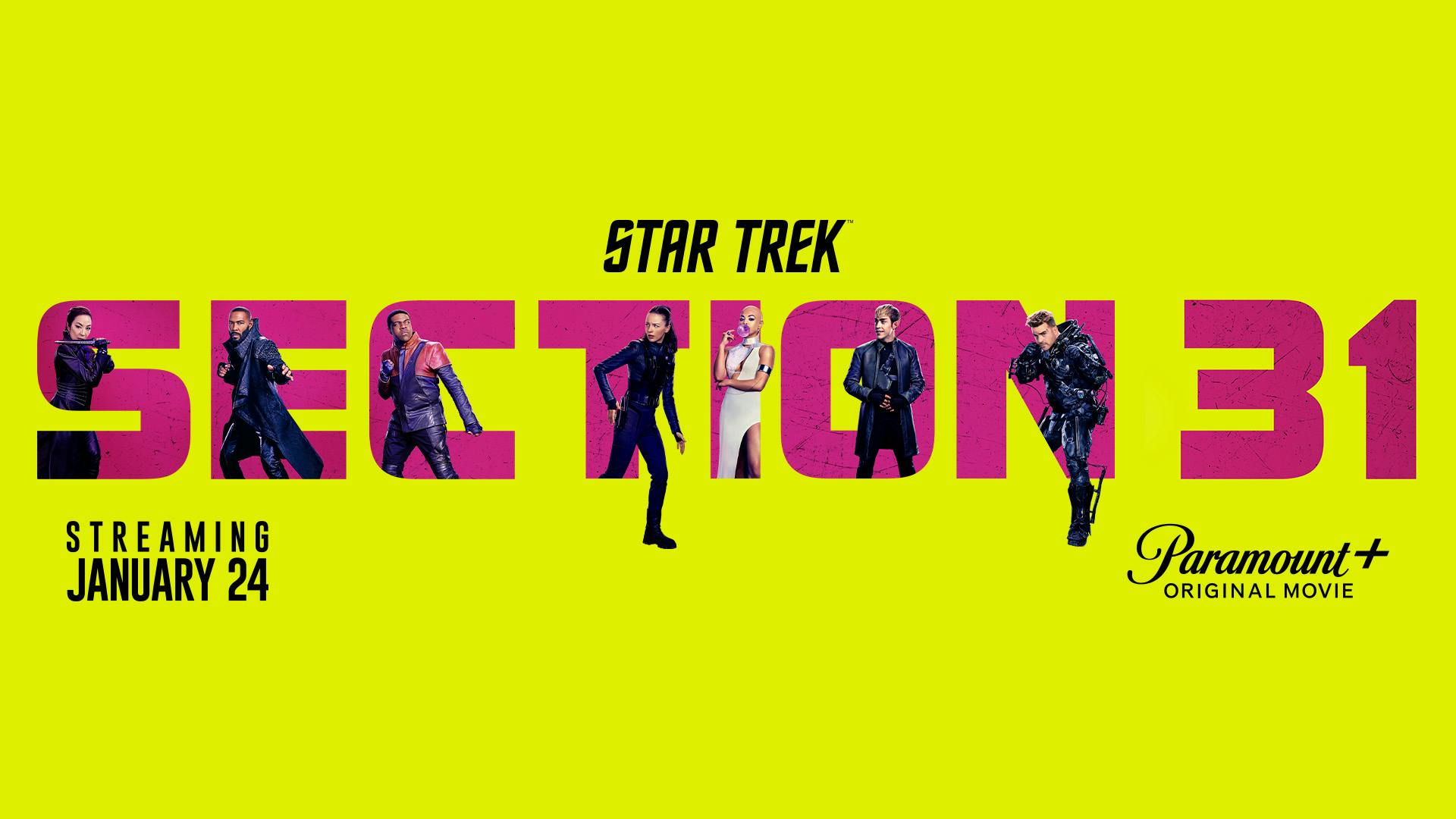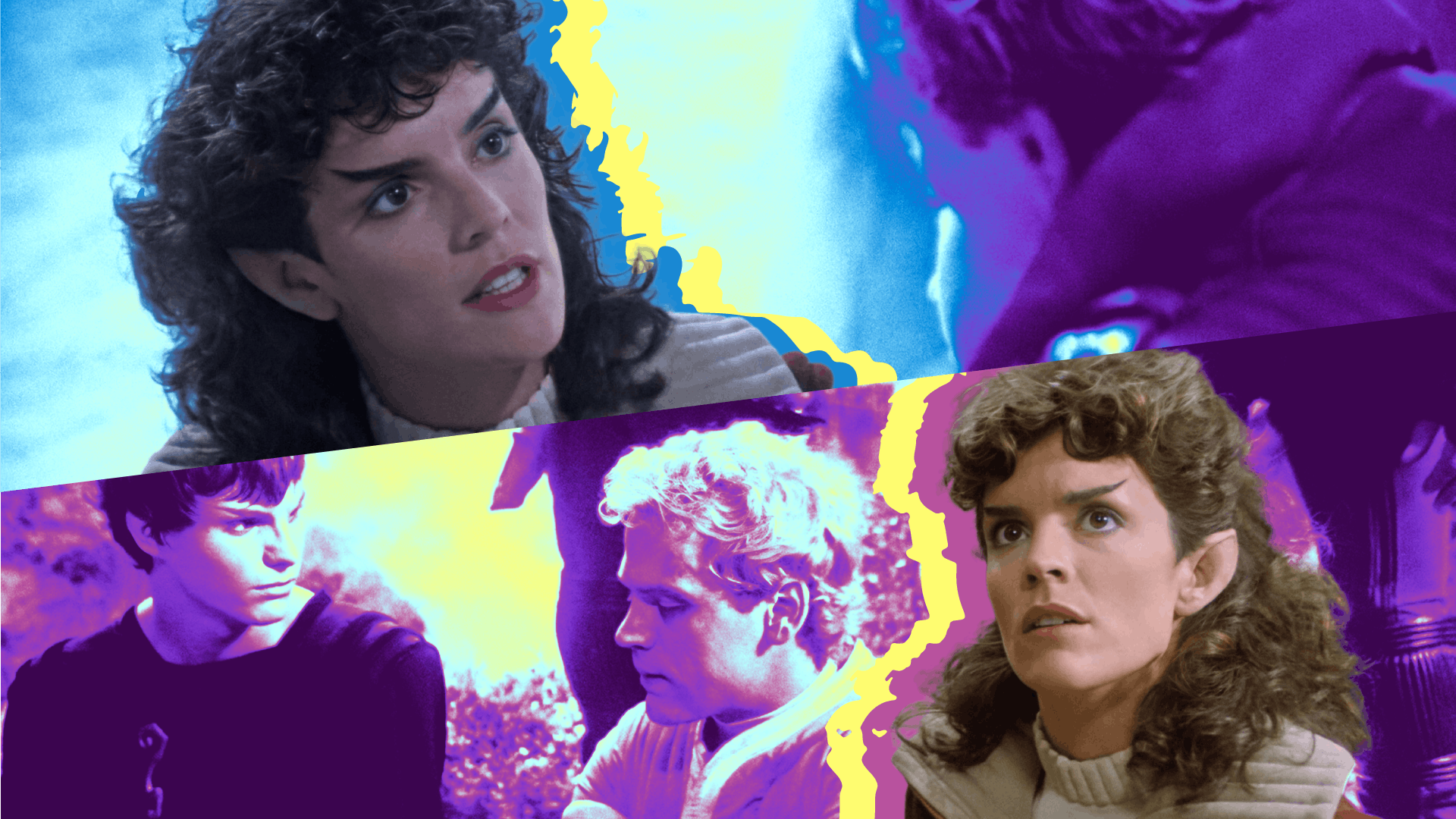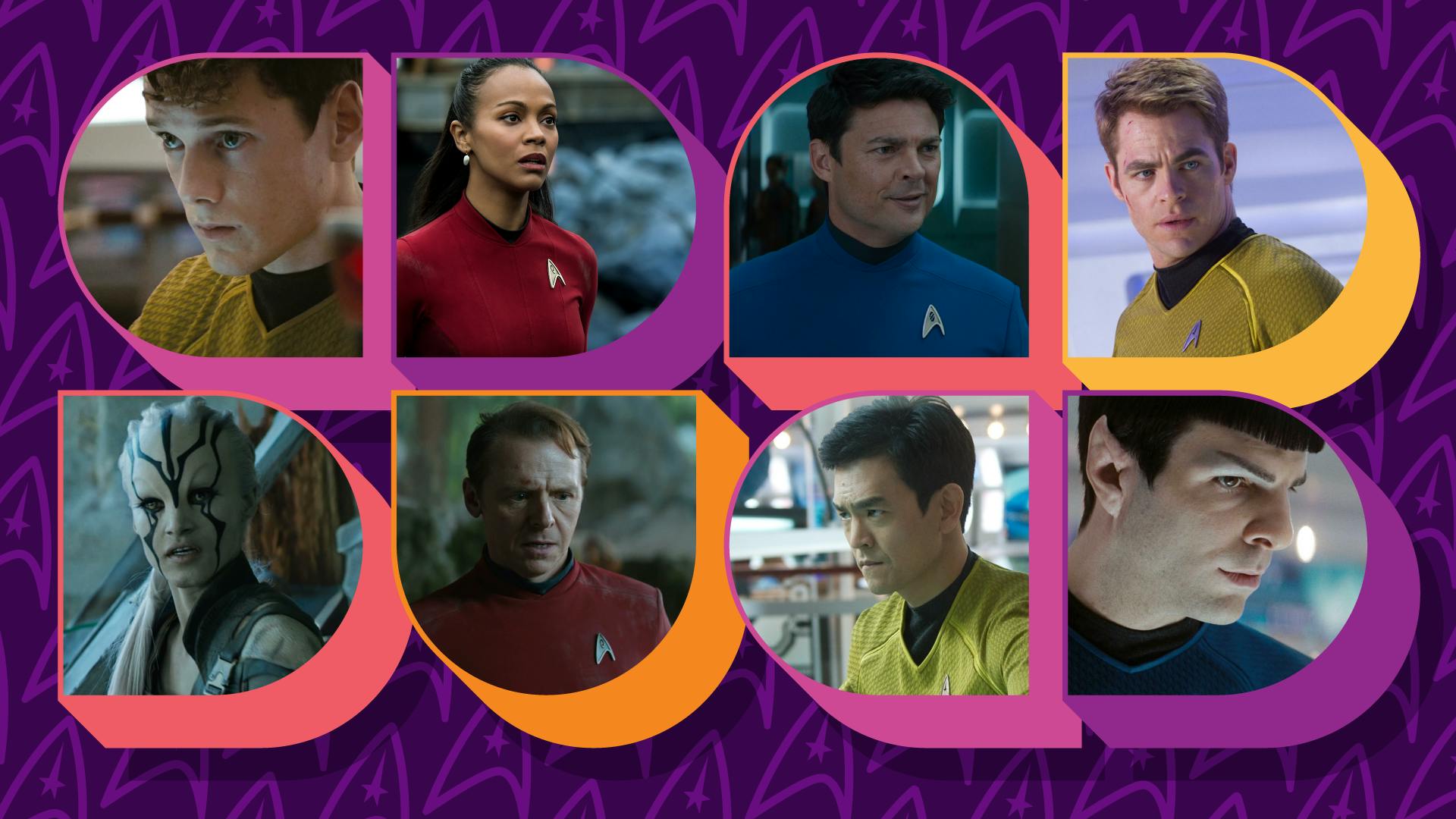Published Jun 7, 2024
Star Trek V: The Final Frontier Delivers Profound Cinematic Moments
In honor of the film's 35th anniversary, let's reflect on this underrated gem and relive these highlights!
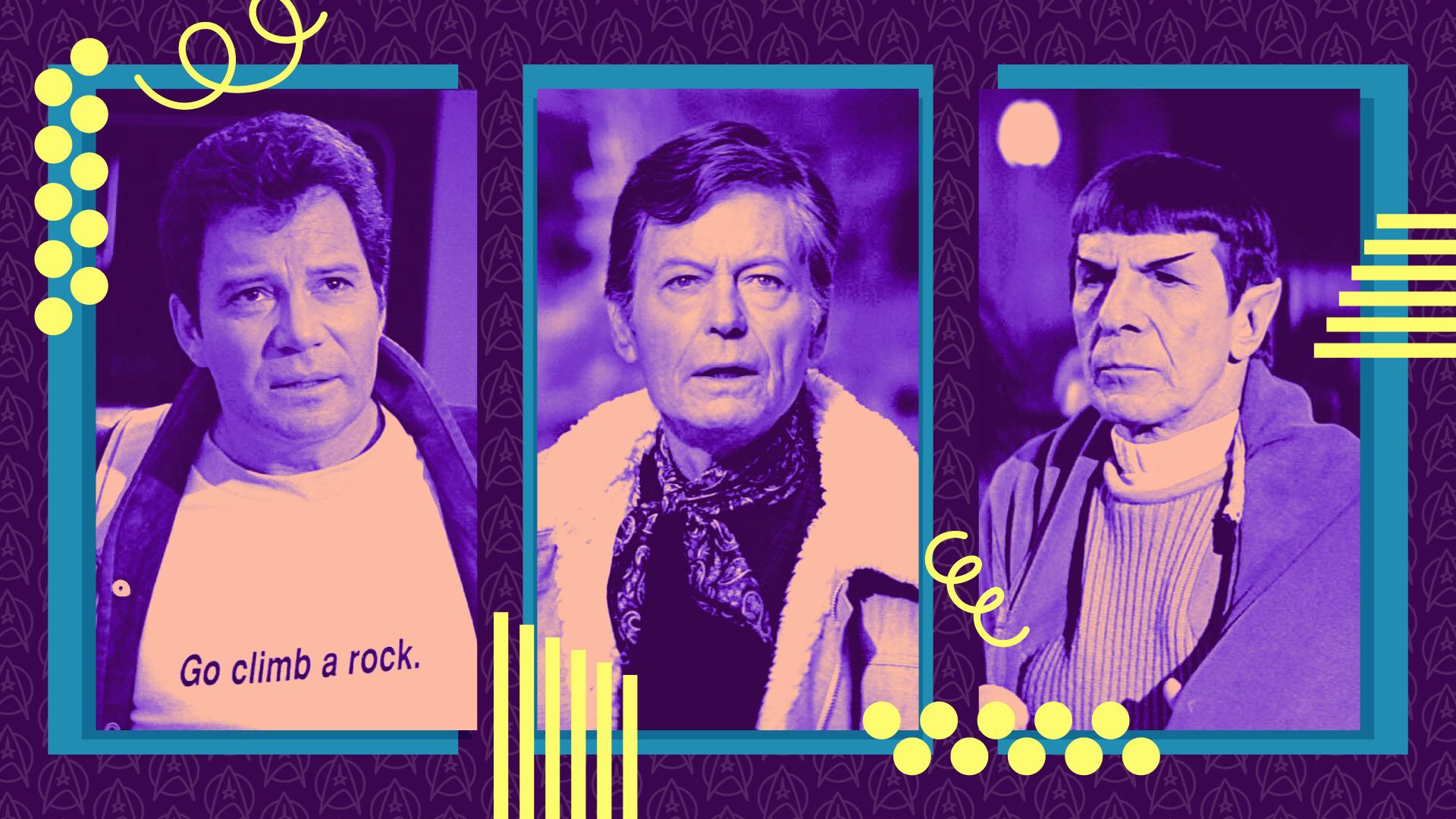
StarTrek.com
Situated between and in the pantheon of films centered around James T. Kirk's U.S.S. Enterprise, is often overlooked when debates erupt regarding Star Trek's most profound cinematic scenes.
Existing in the shadow of other popular Star Trek releases is not easy, yet The Final Frontier delivers an abundance of meaningful moments and profound dialogue, particularly related to the triumvirate of Kirk, Spock, and Leonard McCoy.
In honor of The Final Frontier's 35th anniversary, let's reflect on this underrated gem and relive these highlights in the order in which they appeared in the film.
1. "I knew I wouldn’t die because the two of you were with me." — Captain Kirk
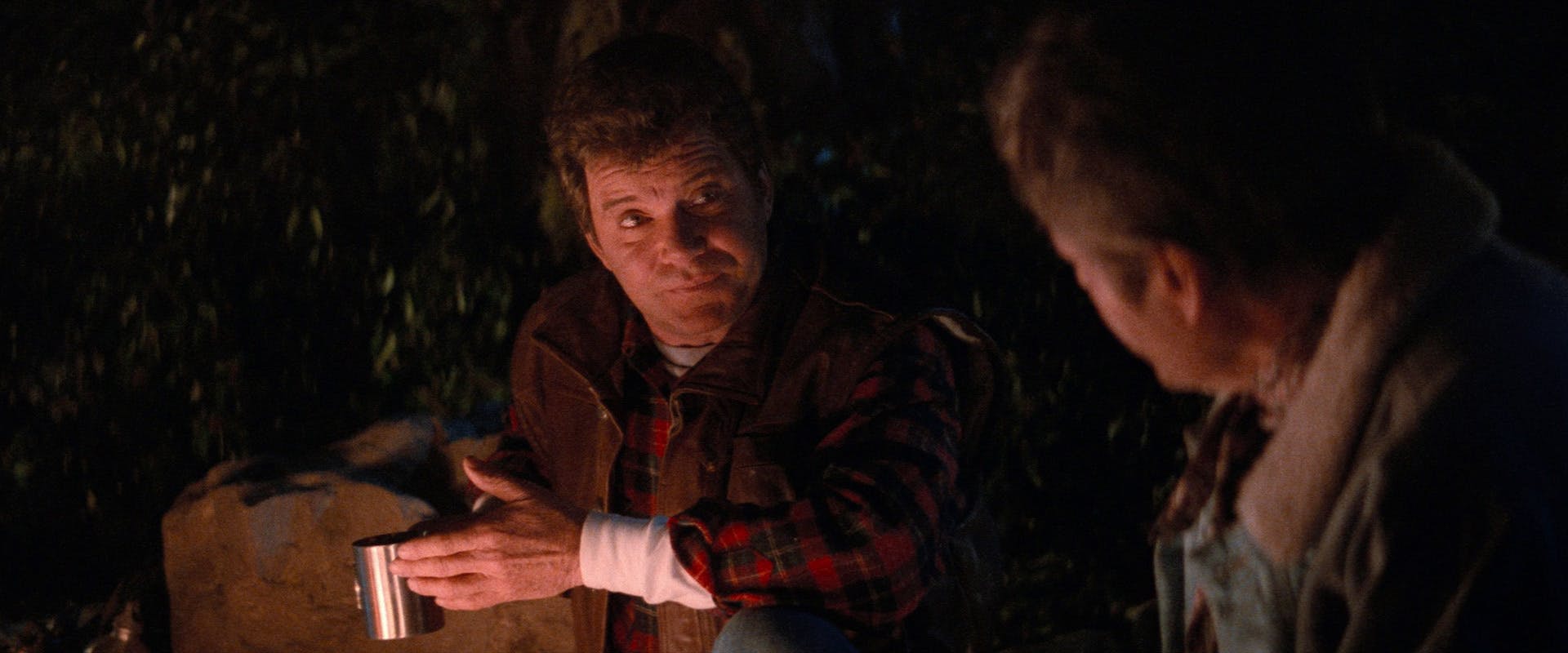
Star Trek V: The Final Frontier
StarTrek.com
Following Kirk's plunge from the El Capitan summit, he was chastised by Dr. McCoy for his reckless behavior.
The captain's assertion that he always knew he would die alone was key on two fronts, as it exemplified his unwavering trust in Spock and McCoy while also offering insight into his views on death as he entered the later stages of his life. Kirk's maturity, both in terms of his friendships and his outlook on mortality, was met in perfect fashion by his friends. As Spock gazed, McCoy sought to break the seriousness by stating, "Well, I’ll call Valhalla and have them reserve a room for you."
2. "What do we do when shore leave comes along? We spend it together." — Dr. McCoy

Star Trek V: The Final Frontier
StarTrek.com
The doctor chased Kirk's commentary on death with his own observation that, despite their squabbles aboard ship, they were still drawn to one another in their downtime. McCoy references their lack of family ties, building upon the idea of aging officers reevaluating the courses they had chosen for themselves.
As is often the case in The Final Frontier, the weighty dialogue is flavored with light humor. Marsh melons, campfire songs, and Spock's "Were we having a good time?" inquiry — exquisitely punctuated by McCoy's "God, I liked him better before he died" response — underscore their friendly banter and illustrate the many frontiers their bond has endured.
3. "You mean he's your 'brother' brother? You made that up." — Captain Kirk
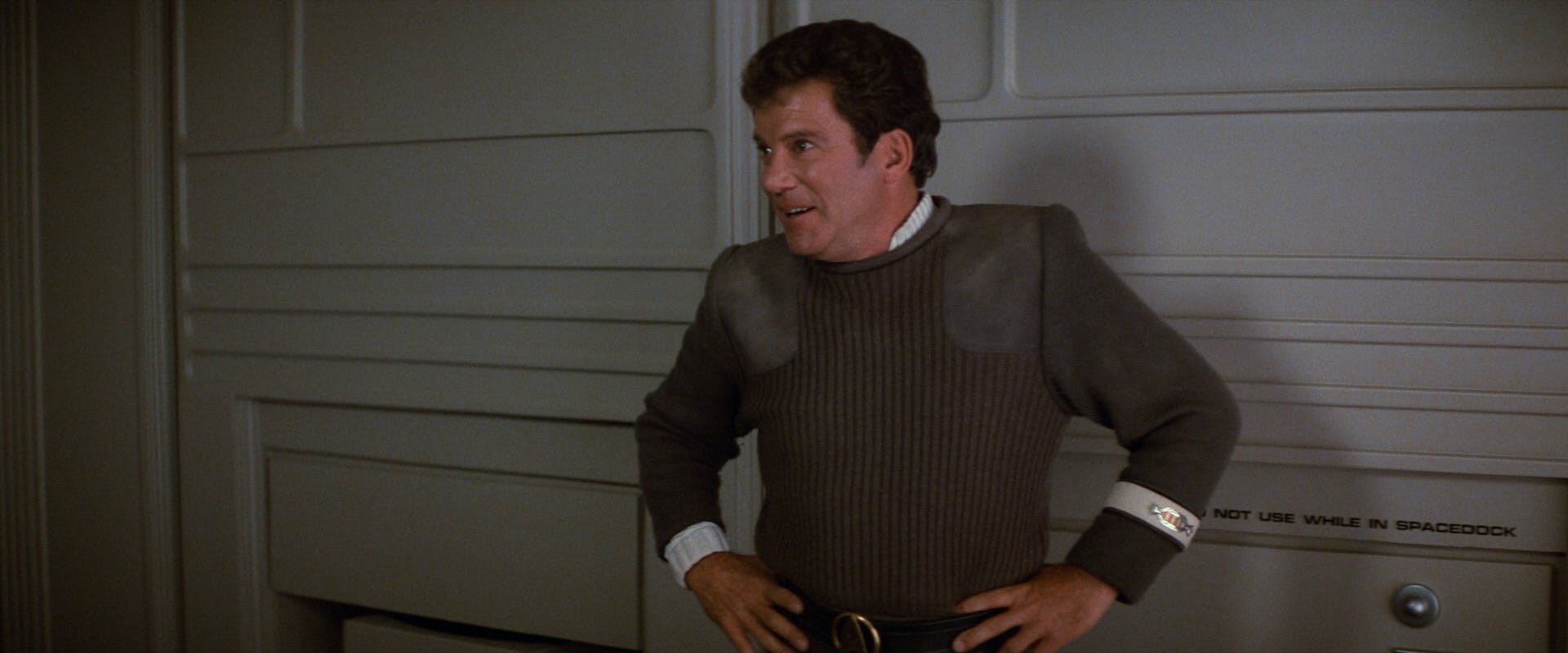
Star Trek V: The Final Frontier
StarTrek.com
Furious at Spock for disobeying his order to shoot Sybok, Kirk vented his anger by confronting the Vulcan about the perceived betrayal. Though he declined McCoy's enthusiastic offer to hold Spock so Kirk could enact corporal punishment, the captain was confused by his friend's decision willingness to place the ship at risk. Spock's admission that Sybok was, in fact, his brother perplexed the captain even further, as it riffed on their previous conversation about lacking family and offered a quintessential Spock declaration, "Technically you are correct. I do not have a brother. I have a half-brother."
McCoy's disposition instantly shifted into Spock's favor, once again providing a look into the trio's complex and ever-evolving relationship.
4. "All my knowledge, and I can't save him." — Dr. McCoy
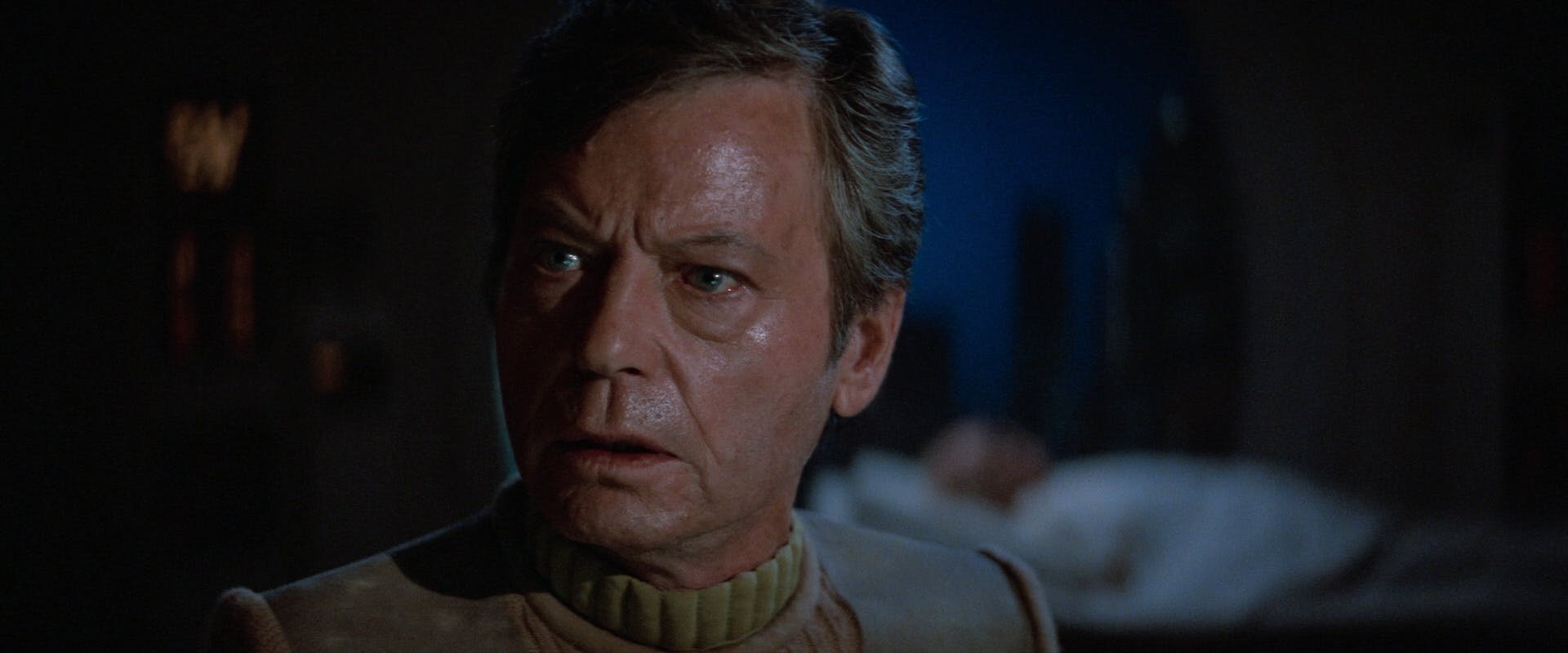
Star Trek V: The Final Frontier
StarTrek.com
In a bid to rally McCoy to his cause, Sybok presented the doctor a harrowing vision that harkened back to his father's last days. For all of the incredible cures he devised throughout his time in Starfleet, McCoy helplessly stood by as his father's condition deteriorated. At his father's request, McCoy released him from his agony by administering a swift and painless death. The tragedy became amplified when a cure for the elder McCoy's condition was discovered not long after the doctor's merciful act.
Dealing with loved ones who have terminal illnesses is a universal struggle that all humans can relate to, and McCoy's gut-wrenching memory furnished us with what was perhaps the doctor's most powerful character moment in all of Star Trek.
5. "I don't want my pain taken away. I need my pain!" — Captain Kirk
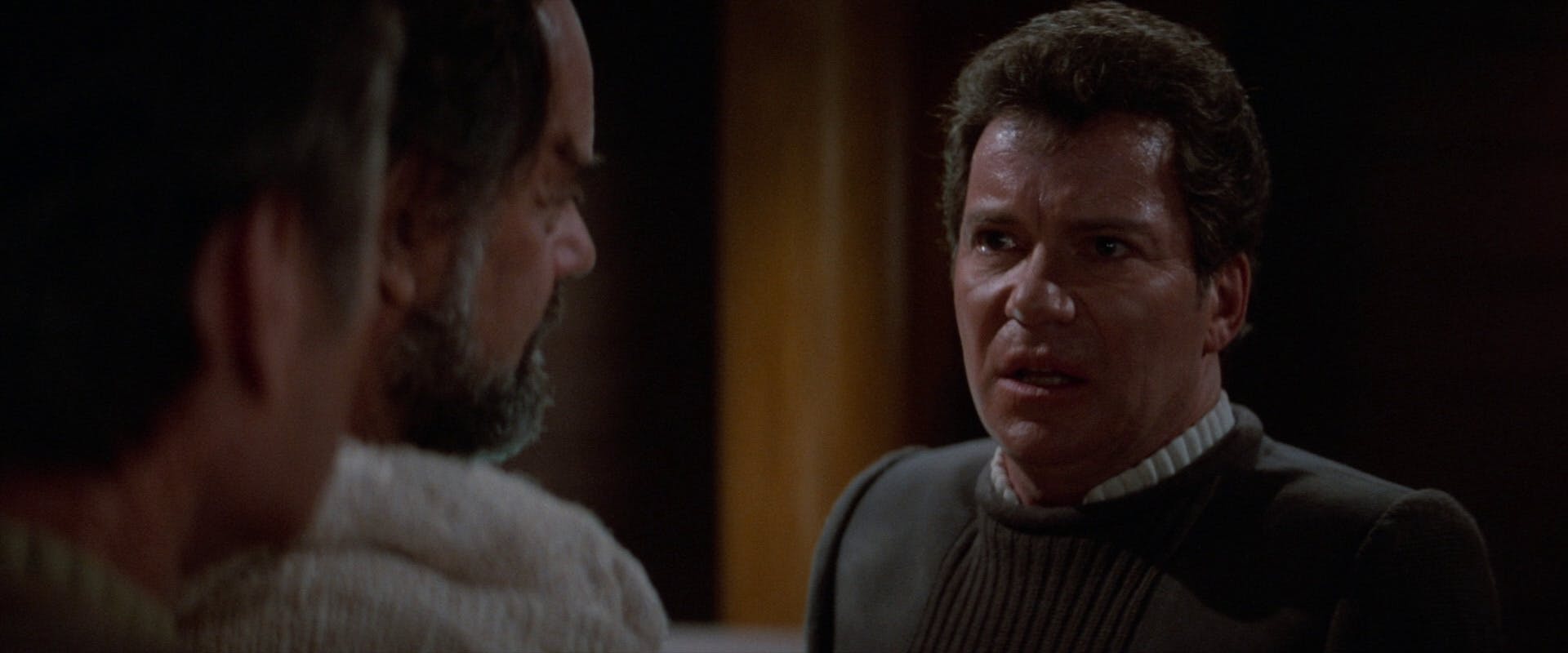
Star Trek V: The Final Frontier
StarTrek.com
Having already witnessed Sybok put McCoy and Spock through their own trials, Kirk refused to indulge in what he perceived as a con man's mind games. The captain asserted that pain and guilt could not be taken away with the wave of a magic wand, doubling down by proclaiming they're things we carry with us and make us who we are.
While some may argue with the validity of that reasoning, one can't help but find Kirk's analysis to at the very least be thought-provoking and another indication of where he was at on his personal journey. With McCoy convinced of Sybok's authenticity, Kirk's plea of "If we lose them, we lose ourselves" can be seen as a way to sway the doctor's point of view or an effort to persuade the captain of his own argument.
6. "I am not the outcast boy you left behind those many years ago." — Spock
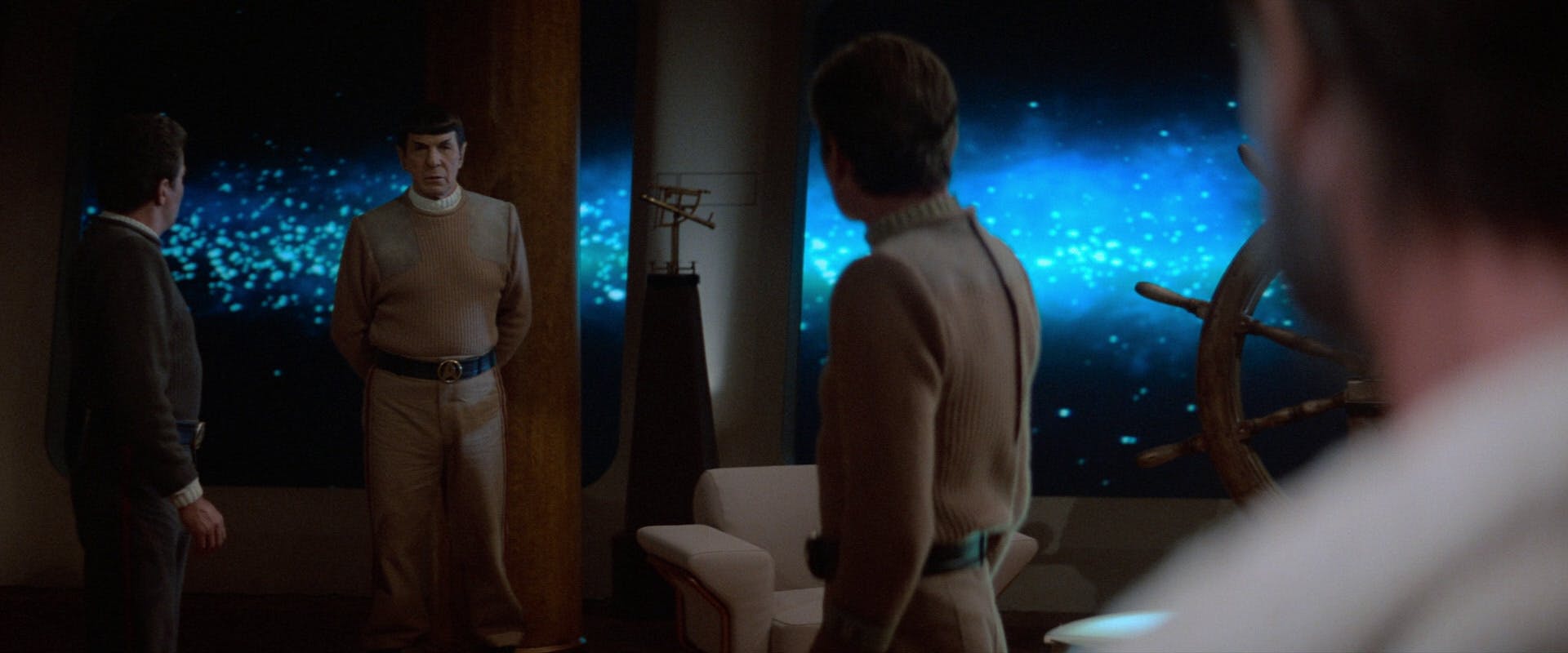
Star Trek V: The Final Frontier
StarTrek.com
Further underlining the critical nature of this moving scene, Spock denied Sybok's entreaty to join him on his journey through the Great Barrier with an air of reserved self-assurance that only he could deliver. While McCoy found sadness in Sybok's vision and Kirk was provoked to anger by the conversation, Spock reacted with the conviction of a person who was completely secure with who they were as an individual.
Long gone were his days of feeling out of place, as his time on the Enterprise helped guide him on his path and set him apart from the boy Sybok knew. Spock had found himself, and he had also found his place. The Vulcan's certainty in choosing his friends over his own half-brother granted McCoy with his own sense of clarity, as the doctor resisted his drive to follow Sybok and opted to remain by Kirk and Spock.
7. "Is it possible?" — Captain Kirk
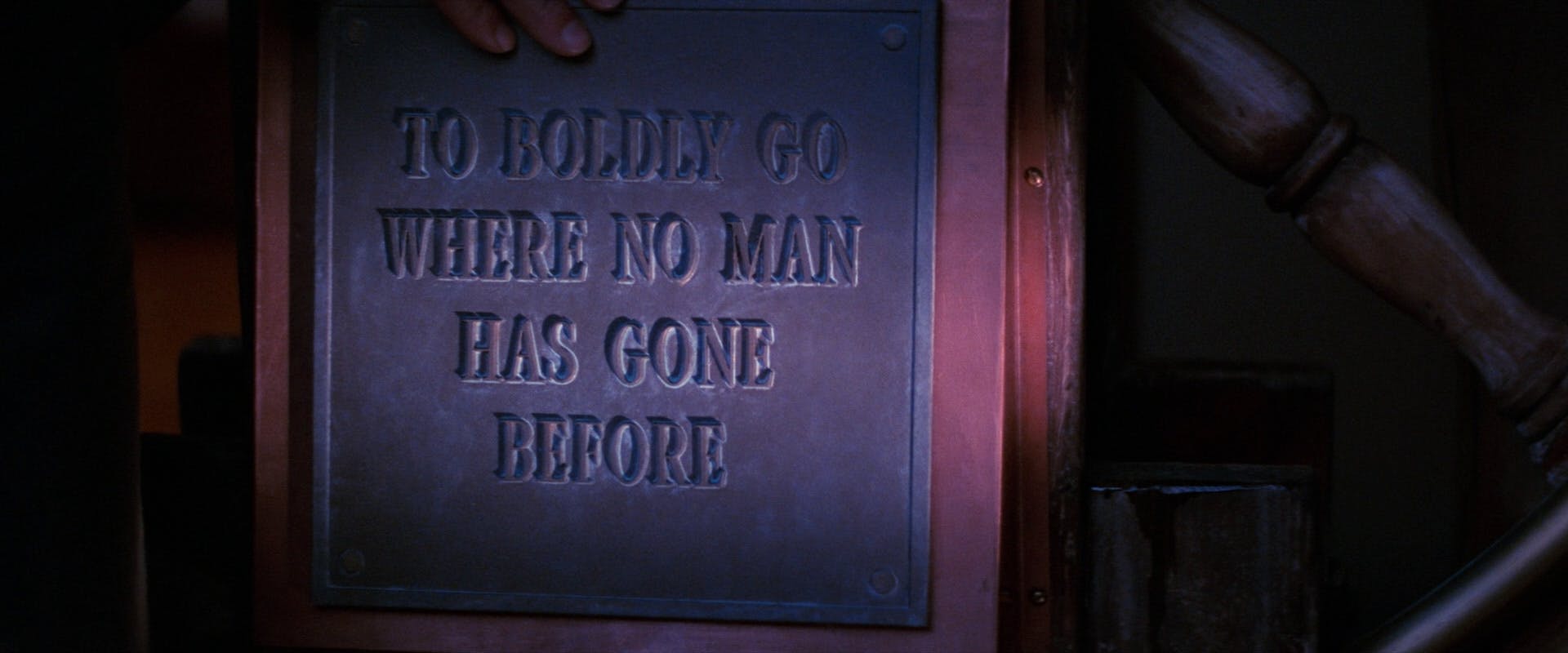
Star Trek V: The Final Frontier
StarTrek.com
Once through the Great Barrier and in range of what Sybok referred to as Sha Ka Ree, Kirk joined Spock and McCoy in marveling at what they saw before their eyes. The captain turned to the plaque emblazoned with the motto, "To boldly go where no man has gone before," reevaluating his views on Sybok's quest and electing to command the endeavor himself.
The notion of apparent foes coming to a peaceful compromise is about as "Star Trek" as something can be, as is the aspiration to seek out and understand the unknown. In the wake of their recent emotional ordeals related to pain and family, Kirk and his two colleagues nevertheless managed to shift gears and demonstrate that they each had the heart of an explorer.
8. "What does god need with a starship?" — Captain Kirk
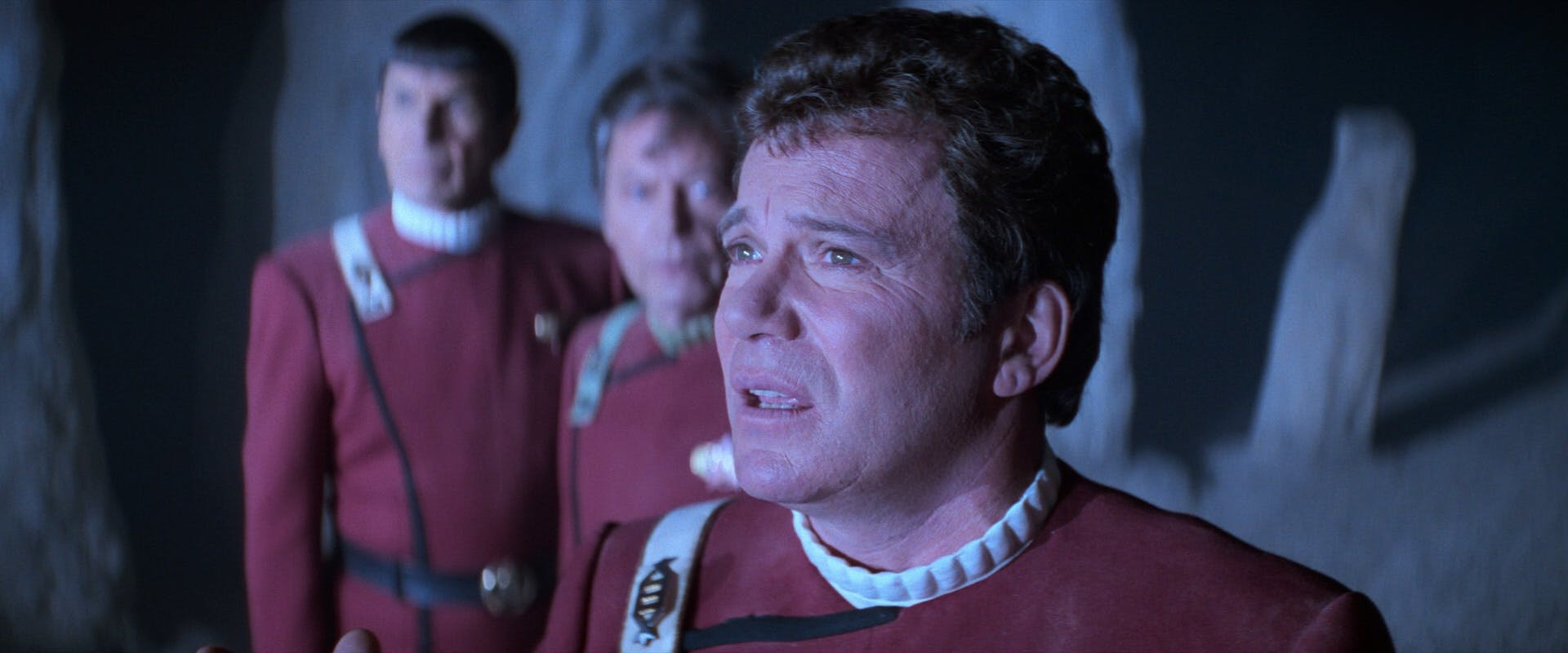
Star Trek V: The Final Frontier
StarTrek.com
As Sybok conversed with what he believed to be the God of Sha Ka Ree, Captain Kirk began to sense that all was not as it seemed. Recognizing the alleged deity's interest in the Enterprise, Kirk boldly asked what an all-powerful god would need with such a means of transportation. The question drew the entity's ire, resulting in an energy beam being directed at the captain. Spock immediately took up Kirk's inquiry and received the same punishment, leading McCoy to conclude, "I doubt any god who inflicts pain for his own pleasure."
The exchange expertly returned to the ongoing theme of pain while also underlining Starfleet's need for scientific analysis and evidence to back up any remarkable revelations.
9. "You were never alone." — Spock
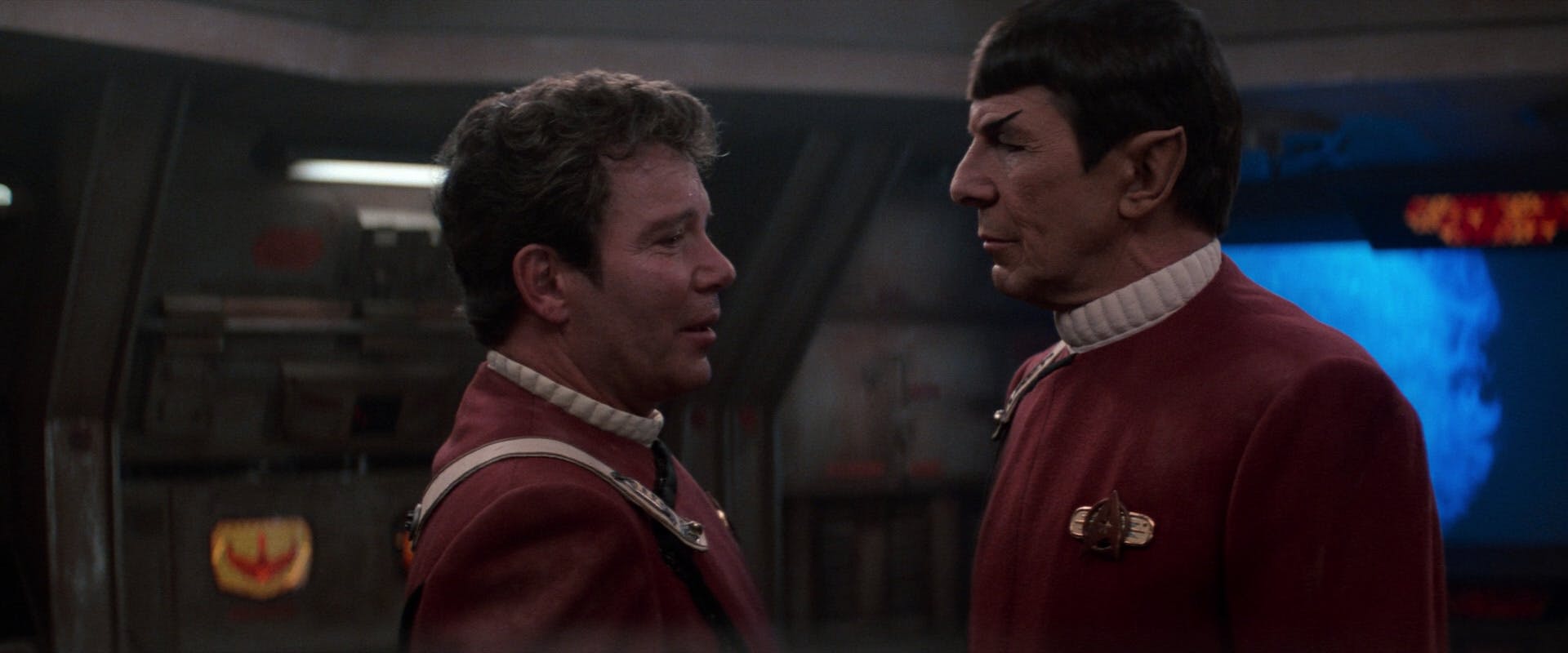
Star Trek V: The Final Frontier
StarTrek.com
Captain Kirk ensured that his friends were safe and faced the false "God of Sha Ka Ree" on his own, but Spock swiftly returned aboard a Klingon Bird-of-Prey to rescue him. Once reunited with Spock, Kirk admitted that he thought was going to die. Spock shook off the claim, reminding that such a fate had not been possible at the time, as the captain was never alone.
The touching declaration underlined the unrelenting bond the two officers had forged, and Kirk was moved to the point of embracing Spock. Whether spoken to infuse the moment with his signature brand of deadpan levity or as a way to steer clear of a very un-Vulcan hug, Spock stated, "Please, Captain. Not in front of the Klingons." Given Spock's predilection for choosing his words wisely, the most likely explanation for his reluctance toward an emotional display was that it had simply been rooted in a wish to keep their friendship private.
10. "I lost a brother once. I was lucky, I got him back." — Captain Kirk
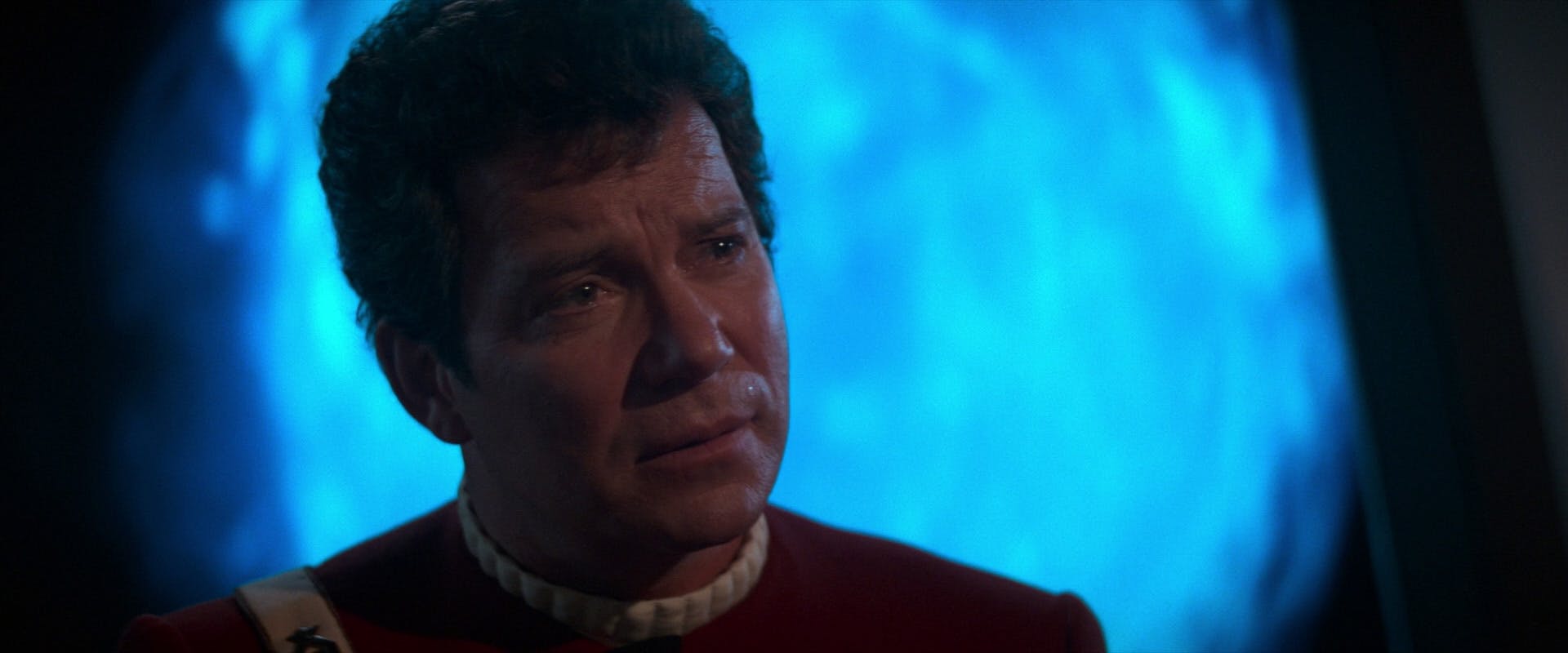
Star Trek V: The Final Frontier
StarTrek.com
As McCoy and Spock speculated about whether or not god was really "out there," Kirk proposed that perhaps such a deity existed within their hearts. Spock contemplated his brother's death, leading Kirk to reference Spock's own demise and the joy he felt over getting him back. McCoy recalled the captain's earlier comment that people like them don't have families, to which Kirk replied, "I was wrong."
Enlightened, moving, and heartfelt, this moment tied together the film's themes about family, friendship, loss, growth, and wisdom. Kirk willingly showcases his fallibility, and the scene segues full-circle into The Final Frontier's closing scene that depicted Kirk, Spock, and McCoy revisiting their campfire and embracing their familial relationship with song.

